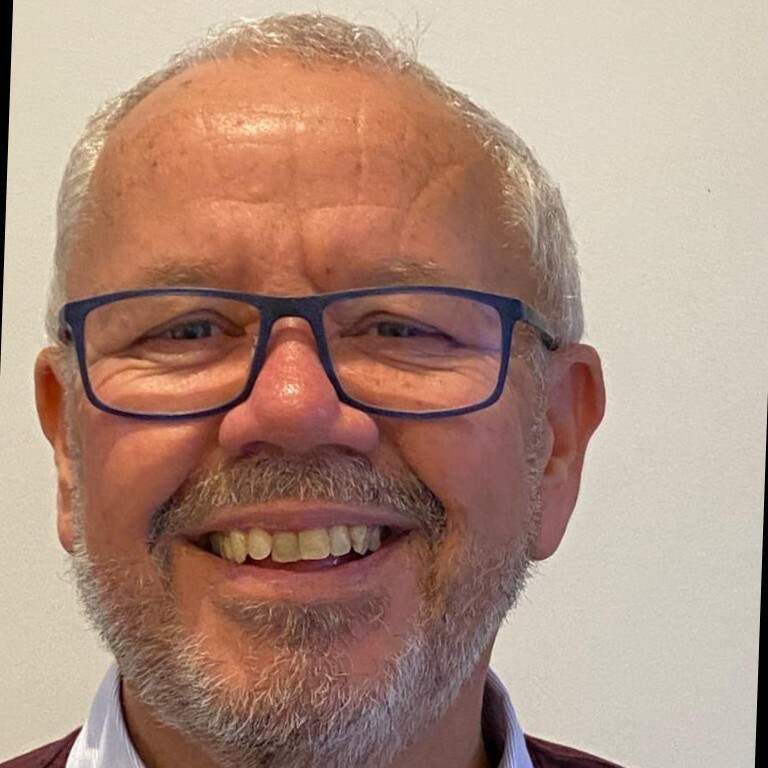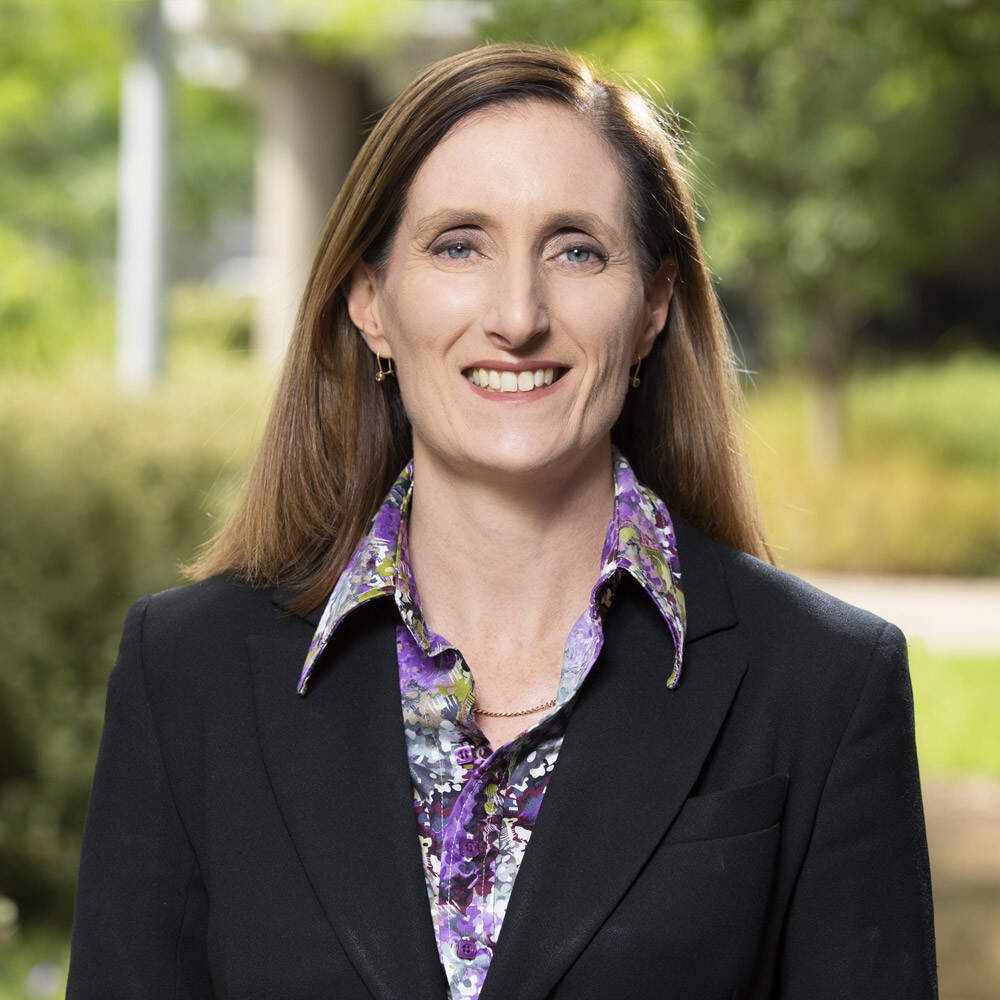17 October 2021
Conversations from the ITS World Congress 2021 #4

ITS Australia
Throughout the week, ITS Australia has been checking in with a number of our members who are in attendance at the ITS World Congress in Hamburg, Germany. In this podcast, ITS Australia's CEO Susan Harris chats with Danny Woolard, Director - Business Development at GEWI.
Susan: Hi everyone. Welcome back to this podcast series. I'm Susan Harris, the Chief Executive at ITS Australia. As you are aware, this is the week of the ITS World Congress in Hamburg this year. But certainly, many of us are not able to make it from Australia. So we're really pleased to be talking to a number of our friends and partners who are there and out letting us know what they're seeing in Hamburg. Today, I've got the pleasure of talking with Danny Woolard from GEWI. And Danny is going to give us a bit of an update as to what's going on and how are you, Danny?
Danny: I'm very well Susan. And forgive me for saying good morning because as I say, it's pretty early morning here in Hamburg. But, I'm very well thank you.
Susan: Fantastic. And how're things going in Hamburg? What're your initial thoughts? You've been in the World Congress for a few days now?
Danny: Yeah, I actually arrived on Saturday because I was involved in setting up the booth for GEWI. I arrived in beautiful sunshine, quite a pleasant autumn morning when I arrived. Yes, it's surprisingly busy. I think it took everybody aback yesterday, which was the first full day of the exhibition. As I say, there was lots of speculation about how well attended it would be. But if anything, if yesterday was anything to go by, we're in for a busy couple of days ahead of us.
Susan: That's fantastic. It's great to hear that the industry is alive and well and thrilled that those that can are back together. I know you've got a stand with GEWI in the Congress Hall, exhibition hall. You've been doing some great things in the new mobility and cycling space in particular. Do you want to give us an update on that?
Danny: I guess for GEWI, we were quite keen to get back to real work and talk to real customers face to face. I think that’s a feeling that's gone on with everybody. I was pleased to, everybody's pleased to, be able to meet again despite some restrictions. We, being a German-based company, this is home territory for us. So we were quite keen to make a big splash. So we've got quite a big stand alongside our industry partner, TISA. We work closely together with them, as you know, very actively involved. So for GEWI really what we were keen to show is some initiatives and some developments that we've been doing in the mobility space, particularly around cycling. I think since the pandemic, there's a shift towards cycling as a real alternative mode for urban transportation, both of obviously, people and goods. So we've been developing a solution that is part of our tech product family, as a solution. It's basically all about the movement of people and goods and the disruptions. We've, we launched that, it'll appear in the show daily, this, this event, so you'll be able to see that the article online.
Susan: Yeah, fantastic. I have to look out for that. But I know cycling is a huge emphasis on active transport in Australia at the moment, and with the move to e-bikes, as well, that creates even more opportunity to make it suitable for different activities, including freight. I really look forward to seeing a bit more about that.
Danny: Yeah I think our work started around a year ago, and it was natural for us seeing that, as you say, the move towards active transport to see what we could do to develop our platform for future applications. We started doing some research on the cycling market, huge investments, going into both creating new safe cycle spaces, cycle pathways, and a lot of initiatives looking at intelligent transport systems in cycling. There's a European project that's been running for a couple of years called BITS, bicycle ITS naturally. There's a number of developments going on in that project around the implementation of ITS into the cycling industry. It's one we're following quite closely. At the moment it’s very clear that there's a desire from the cycling industry and, urban authorities and Metropolitan agencies to include technology in the development of their cycling activities.
Susan: Yeah, fantastic. And I know that GEWI has also been working closely with TISA on the development of a new solution related to TPEG and emergency alerts, you're able to share a bit about that activity.
Danny: This was a project that was probably started over two years ago, with putting an initiative together with a German organization called the BBK, a government body, it's the Federal Office of Civil Protection and Disaster Assistance. It's a government department responsible for ensuring the safety of German citizens in the case of either natural or manmade disasters. We've been working with the BBK. Under TISA we have a number of partners working on the program, they include TomTom, NNG, ourselves, BMT, and obviously TISA. What we have developed is a way of taking an industry-standard protocol known as CAP, the Common Alerting Protocol, which is in global use for emergency authorities, including Australia, and the CAP data contains information about, problems, disasters, etc. It defines those as part of the protocol. What we've done with TISA is to do the translation and conversion of CAP into a TPEG message set. Now, TPEG is also broadly used. We've got implementations pretty much global, in terms of both broadcast and the connected vehicle industry. What we've been doing is, really focusing on the disruption to traffic and the safety of drivers during natural disasters, and just to translate that into a real-world scenario. I guess in Australia, ensuring that motorists are warned not to pass by road, perhaps because there are bushfires. And so it has a global impact in terms of its implementation. So TomTom and NNG have worked on the service aspect, GEWI and BMT have worked on the translation with some of their broadcast partners to take that message. As a part of our customer base, we have most of the German Public Radio Networks. We've done that work with the local broadcaster here in the Hamburg area. And the trial now has come to an end. It was formally presented in an event in Bonn last Friday and we had a session yesterday, pretty well attended. We showed the results of our findings, what it was all about. We're quite keen to communicate that to ITS Australia members as well because we think that there is—certainly if you take him to account organizations like the SES and the state road authorities, they should be really interested in taking a look at this.
Susan: Yeah thanks, Danny. We look forward to sharing a bit more detail with the Australian audience, certainly bushfires, but also, floods and a range of other disasters are really important to communicate effectively to people and if we can move to a national standard.
Danny: It’s not all about what we would consider natural disasters or manmade disasters such as chemical spillages and fires. You know, it's equally applicable to be able to communicate to citizens, issues and problems about areas that are a no go area, for instance.
Susan: It's a fantastic initiative. So moving on, more generally, as I said. You've had a couple of days at the Congress, that you've also been living in the European environment which is often seen as a bit of a lead for what might be coming our way in Australia? What are you seeing as the important implementations or the key themes?
Danny: Well, it's it was the first full day of the exhibition yesterday. As I say, genuinely, I think everybody was slightly taken aback about how busy it was how many attendees. I'm not sure what the official numbers are, we should know that at the end of the week, I think there's a real buzz about the conference. You know I think people are really keen to get back to meeting people. You wouldn't think that there is a pandemic, apart from obviously everybody's wearing masks. But then, we're obviously missing a number of international contingents, obviously, Australia, we missed the bar last night. There’s very few Americans who visited and also a lack of visitors from Southeast Asia as well. But having said that, a lot of European visitors, a lot of good sessions going on. I haven't had too much chance—we were pretty busy yesterday, and I also had my session, which I was speaking at—so I haven't really had too much chance to look around the exhibition. But it looks pretty interesting. There’s quite a bit of discussion going on around mobility. One thing that's surprising, quite an absence of too much discussion about automated driving, which is slightly surprising. I noticed a session yesterday, I think it was titled “Where Have all the CAVs Gone?” Surprising that the focus seems to be a little bit away from automated driving now and moving more towards mobility. Some topics on MaaS, and also micromobility, which comes into our space, or what we're doing in the cycling industry.
Susan: Yeah, fantastic to hear that it's such a great success over in Hamburg and that there's a really vibrant industry. We're hearing a lot of things. There's certainly lots going on. But it's great to see that the World Congress continues to have that focus and that real relevance to the industry as well as that important collaboration space. We're really looking forward to getting back to events in Australia next year. And we're hoping, Danny, that you’re going to be able to come over maybe to our Mobility conference in Sydney. There'll be in Sydney next year in June. So it'd be great to see you there and glad to hear that the event’s going well and that you're all keeping safe. So I look forward to seeing you in Australia next year. We hope.
Danny: I certainly hope so Susan. I'm missing everybody and my old colleagues. Definitely.
Susan: Thanks, Danny. Thanks very much for your time this evening.
Danny: Okay, thank you, Susan. Thanks.

Danny Woolard
Director - Business Development / GEWI Europe GmbH & Co.KG
Experienced, technology savvy, business development professional. Established and managed a start-up technology manufacturing and systems business in the GPS and Wireless space. The company expanded and diversified into an early traffic telematics technology business and developed the first generation of services in the broadcast traffic technologies sector. I am passionate and focussed on bringing my experience and a wealth of industry knowledge and contacts to help develop product strategies in the dynamic content, telematics/connected car and ITS technologies sectors.
Specialties: Intelligent Transport Systems (ITS), Telematics and Connected Car, eCall GPS Navigation, Traffic Technologies. Broadcast Technologies & Standards, Mobile Technologies, Strategic Business Development, High Level Deal Negotiation


Susan Harris
Chief Executive Officer / ITS Australia
As Chief Executive of ITS Australia, and with an extensive career in transport strategy, Susan is ideally placed at the intersection of technology and transport. Supported by strong connections to the international ITS community and the global network of ITS Associations, Susan works tirelessly advocating for the benefits of transport technologies for business and for the broader Australian community.
Susan is highly regarded for her roles supporting the growth and innovation of the nation’s transport technology industries. She works across a number of industry advisory groups and is a regular advisor to the State and Federal Governments, and their Ministers, on transport technology and mobility issues.

